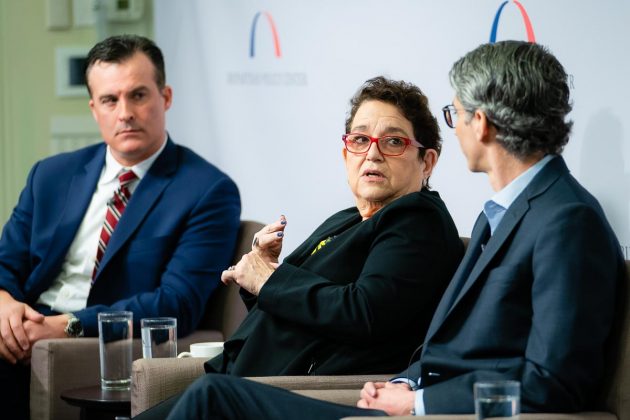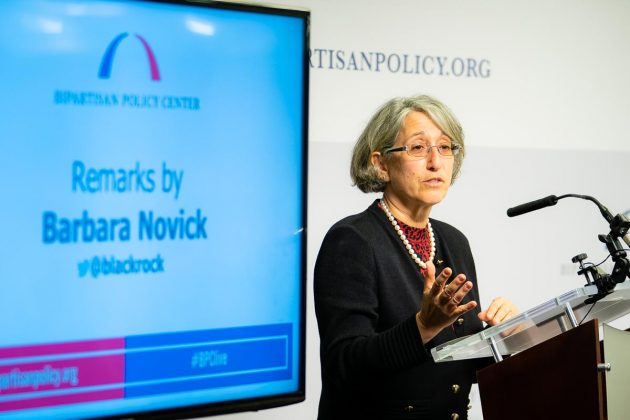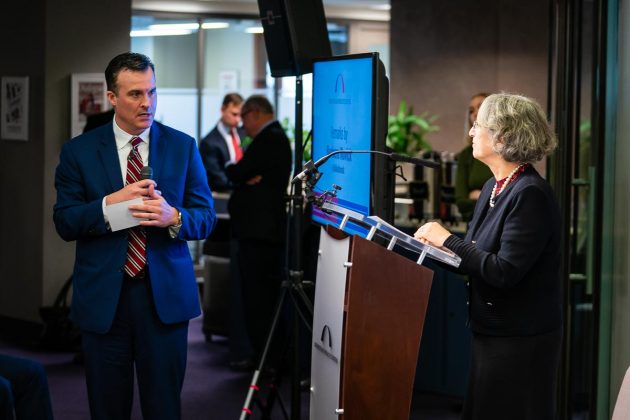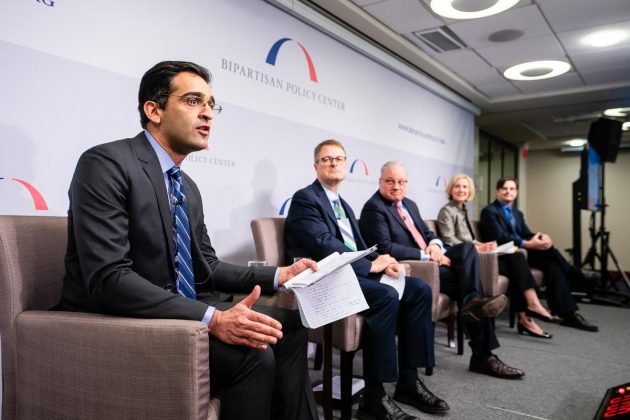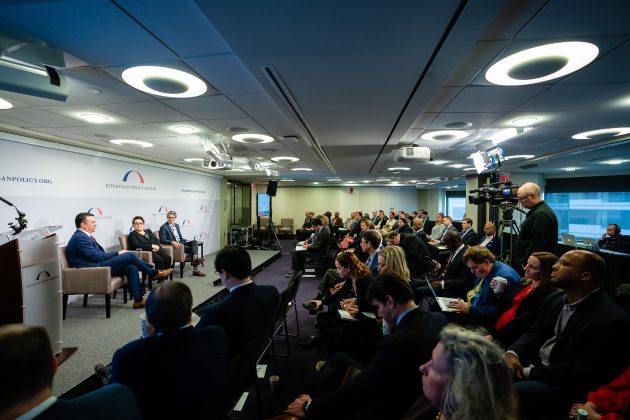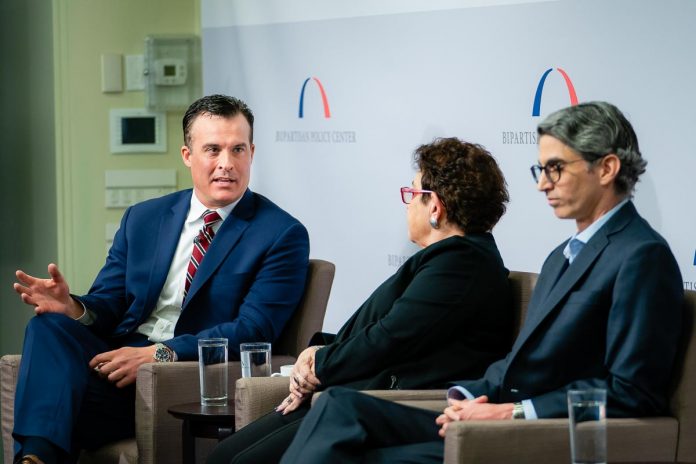
On February 7, the ACCF joined Bipartisan Policy Center for a panel discussion explore how private sector leaders are responding to the growing role of corporate governance in public policy.
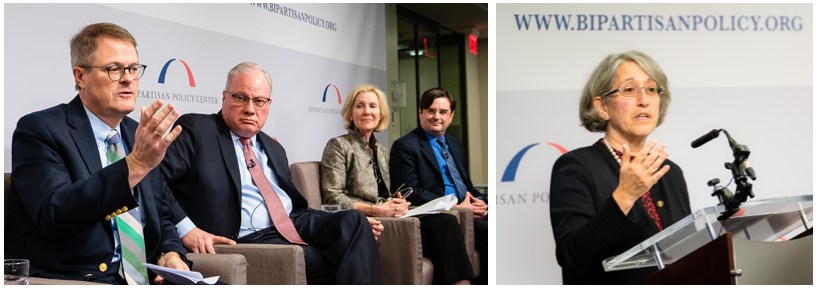
A movement has grown to scrutinize business practices through the lens of public policy concerns. Activists often use corporate governance structures, such as proxy voting, to affect the decisions of investors and businesses on issues ranging from environmental protection to human rights. This trend begs the question of what the private sector’s role should be in addressing public policy issues, and whether current corporate governance structures are up to the task.
ACCF Vice President of Policy and General Counsel Tim Doyle moderated the panel “Next Steps for the SEC,” which included panelists former SEC Commissioners Elisse Walter and Troy Paredes.
Other participants at the event included:
Ken Bertsch | Executive Director, Council of Institutional Investors
Barbara Novick | Vice Chairman, BlackRock
Tom Quaadman | Executive Vice President, U.S. Chamber Center for Capital Markets Competitiveness
Brandon Rees | Deputy Director of Corporations and Capital Markets, American Federation of Labor and Congress of Industrial Organizations (AFL-CIO)
Darla Stuckey | President and CEO, Society for Corporate Governance
Gridlock in Washington is prompting more Americans to look to corporations to take a leading role in policy debates on challenges such as stagnant wages, improved public health, climate change, retirement security and gun safety. Unfortunately, it’s not clear that current corporate governance structures are prepared to take on these issues.
The Bipartisan Policy Center and the American Council for Capital Formation (ACCF) Center for Policy Research believe there is a real opportunity to improve corporate governance structures with a discussion anchored in evidence and respects the legitimate views of competing interests. That is why the two Washington, D.C., think tanks are joining together to try and build a constructive center in this debate.
“A mismatch between current rules and aspirations is not serving workers, communities or shareholders,” Jason Grumet, president of the Bipartisan Policy Center, said. “Unfortunately, efforts to engage these complex questions are freighted with partisanship that is likely to grow worse as we head into the presidential elections.”
Activists often use corporate governance structures, such as proxy voting, to affect the decisions of investors and businesses on issues ranging from environmental protection to human rights. This trend raises questions about what the private sector’s role should be in addressing public policy issues.
“The politicization of corporate governance in recent years carries real consequences for investors and financial institutions,” ACCF President and CEO Mark Bloomfield said. “A bipartisan approach is critical to effectively address these issues. The ACCF is proud of its four-decade run of bringing a wide range of ideologies from both sides of the political aisle together to tackle issues like corporate governance. We are honored to join with BPC in this effort.”
In coming months, the two organizations will be holding public and private conversations to gather a variety of viewpoints to determine what is realistically possible on this timely issue.
Watch video of event:
View Photo Gallery:


